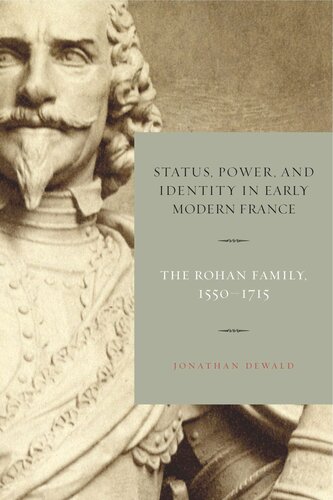

Most ebook files are in PDF format, so you can easily read them using various software such as Foxit Reader or directly on the Google Chrome browser.
Some ebook files are released by publishers in other formats such as .awz, .mobi, .epub, .fb2, etc. You may need to install specific software to read these formats on mobile/PC, such as Calibre.
Please read the tutorial at this link: https://ebookbell.com/faq
We offer FREE conversion to the popular formats you request; however, this may take some time. Therefore, right after payment, please email us, and we will try to provide the service as quickly as possible.
For some exceptional file formats or broken links (if any), please refrain from opening any disputes. Instead, email us first, and we will try to assist within a maximum of 6 hours.
EbookBell Team

0.0
0 reviewsIn Status, Power, and Identity in Early Modern France, Jonathan Dewald explores European aristocratic society by looking closely at one of its most prominent families. The Rohan were rich, powerful, and respected, but Dewald shows that there were also weaknesses in their apparently secure position near the top of French society. Family finances were unstable, and competing interests among family members generated conflicts and scandals; political ambitions led to other troubles, partly because aristocrats like the Rohan intensely valued individual achievement, even if it came at the expense of the family’s needs. Dewald argues that aristocratic power in the Old Regime reflected ongoing processes of negotiation and refashioning, in which both men and women played important roles. So did figures from outside the family—government officials, middle-class intellectuals and businesspeople, and many others. Dewald describes how the Old Regime’s ruling class maintained its power and the obstacles it encountered in doing so.